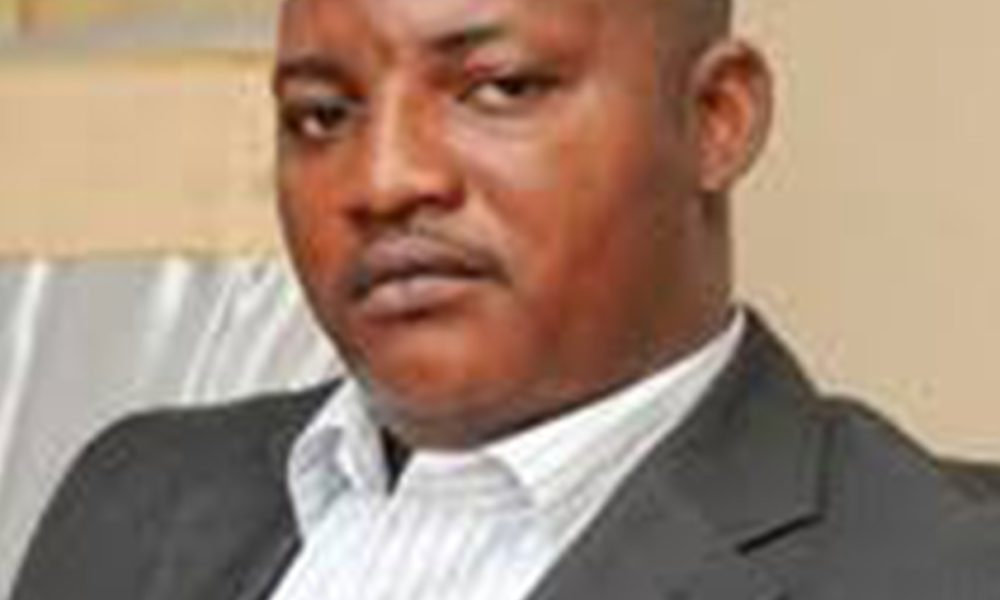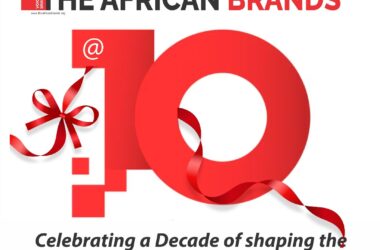More than ten years ago, Dr. Daniel Olukoya, Founder of the Mountain of Fires and Miracles Ministries wrote a book he boldly titled, ‘SLAVES WHO LOVE THEIR CHAINS’. As if to buttress the paradoxical titled, he added an even more puzzling subtitle; “…shall remain in their bondage.” The book’s title is a good illustration for sticking to the status quo even when doing so is detrimental, even when it appears to be a hindrance to growth.
The advertising industry in Nigeria is plagued with a lot of challenges and issues that have been begging for immediate intervention since the late 1980s when the Advertising Practitioners Council of Nigeria (APCON) act was signed into law. These challenges have remained for decades until the Federal Government saw a need for reforms to be carried out to strengthen the nation’s integrated marketing communications space. That began with the appointment of Dr. Olalekan Fadolapo who is the Director-General of the agency. The Minister of Information Alhaji Lai Mohammed had revealed that he believes that if properly carried out, such reforms would enable the apex regulatory body in the industry sanitise the advertising regulatory environment, encourage inclusive growth, attract investments to the sector, and enhance the operating environment for practitioners.
But at every twist and turn that APCON (now ARCON) has tried to create sustainable solutions to these problems, the Advertisers Association of Nigeria (ADVAN) appears to be at loggerheads with the regulatory body. How else can the impasse between the association and the regulatory body be explained? Is ADVAN comfortable with the chains of the status quo that has held the industry down? Is it allergic to any form of change that will place the industry at par with other thriving markets like Kenya’s and South Africa’s as well as those outside the shoes of Africa? Is it implying that the status quo is a global best practice this industry should maintain?
ADVAN consistently appears to dog every move of the regulatory body, every chance it gets, in recent times. Among the many sweeping reforms made by ARCON, perhaps the most controversial, is the one it made on October 6, 2021, when the Advertising Industry Standard of Practice (AISOP) was introduced. Among issues AISOP targeted is the perennial problems of payment circle, pitch fees, seeking to regulate engagement policy, payment terms, and method, media rates and commission, remuneration model, disengagement protocol, returns on advertising investment and measurements, dispute resolution, and other related business procedures.
But despite being part of the process that led to the formulation of AISOP, ADVAN rejected it completely. As reported by one of the industry magazines, Brand Communicator, “consternation buzzed across the industry when details of the new advertising standard of practice were released.”
ADVAN immediately issued a press statement describing the new Standard of Practice as an “unconstitutional attempt to infringe on the rights of private entities to determine their contractual terms.”
In one breath, ADVAN stated that is very supportive of the plan to create a Standard of Practice for the advertising industry, and that one of its key objectives is to facilitate and support progress in the advertising and marketing communications industry, while in another breath, it stated, “… as principal benefactors of Advertising services, our role and input with regards to this AISOP has not been fully on boarded. The current AISOP is void of critical elements that protect the rights and interest of the ADVAN community,” adding, “It is the submission of ADVAN and all its members, that the current AISOP does not serve the collective interest, but rather permits unfair authority of certain parties over others and creates an unfriendly business framework.”
Despite this, ARCON insisted that AISOP is a business framework that must be allowed to work because it seeks to improve mutual respect, eradicate unfair advantage, unethical competition, and un-equitable policies among relevant stakeholders in the advertising and marketing communications industry in Nigeria. Within the industry, AISOP clearly
To better understand the necessity for AISOP, before now, contract rules were hardly obeyed. Advertisers dictated the pace and called every shot. With the new law, the tide is poised to change, a development that apparently, ADVAN is not comfortable with. ARCON is insisting that previous practices made it difficult for media organisations and agencies to survive.
Again, the signing into law of the ARCON Act which repeals the Advertising Practitioners (Registration, etc.) Act, Cap. A7, Laws of the Federation of Nigeria, 2004 and enacts the Advertising Regulatory Council of Nigeria Act, 2022, to establish a Council for advertising, advertisements and marketing communications as the apex regulatory authority for the Nigerian advertising industry, make provision for the regulation and control of advertising, ensure the protection of the general public and consumers, promote local content and entrench the best international practices, is another example.
It was hoped that with the Act which gives ARCON exclusive power to determine, pronounce upon, administer, monitor, and enforce compliance by persons and organizations on matters relating to advertisements, advertising, and marketing communication in Nigeria whether of a general or specific nature, will be welcomed by all, with open arms as this has given teeth to the regulatory body to enforce the bulk of the most needed changes the industry needs to make headway. One would have also thought there would be fireworks of jubilation across the industry, as this means advertising is headed for the much needed change.
But this was not to be as ADVAN through if President, Osamede Uwubanmwem has been granting interviews on how the new ARCON law will stifle the industry, threatening legal action.
Then again, ARCON announced a ban on the use of foreign models and voiceover artistes in Television Commercials (TVCs) and other related materials including billboards that would run in the country, with effect from October 1st, 2022. The news of the ban reverberated across the world with the President of the Association of Voiceover Artists of Nigeria (AVOA), Segun Arinze, taking to the CNN to commend the move and explaining why it was necessary to grow that space.
ARCON had noted that the ban is expected to stimulate and revitalise the Nigerian advertising and marketing communications industry which has suffered a massive setback due to the unbeneficial and untenable preference for the use of non-Nigerian models and voice-over artists on advertisement targeted at the Nigerian market. The ARCON Director-General also explained that the ban is in line with the Federal Government’s policy of developing local talent, inclusive economic growth, and the need to take necessary steps and actions aimed at growing the Nigerian advertising industry.
“Nigerian ambience, cultural heritage, language and mannerism are unique and reverberate in advertisements produced domestically. The relegation of Nigeria’s eminently qualified models and voice-over artists and the redundancy of the ancillary service providers in the industry due to imported advertising services becloud the advancement of creative potentials seeking a foothold to thrive.
“The risk of allowing domestic creativity to wither due to lack of support and patronage in favour of imported advertising services has negatively affected the small, medium, and macro enterprises in the chain of advertising and marketing communications production in Nigeria. Being the highest employer of labour in Nigeria, the SME sector deserves every support of the Federal Government for growth,” he was quoted as saying.
“This new ARCON policy is aimed at empowering the Nigerian youth who aspires to earn a decent living as a model and voice-over artist in Nigeria as well as create jobs, improve advertising service delivery with a positive multiplier effect on the Nigerian economy.”
“It is not taken for granted that some stakeholders may feel adversely affected by the ban. The overriding necessity to develop local inventiveness and to ensure that advertisements resonate with the society where they are targeted and exposed to, is important to ARCON and to the general public,” ARCON had said.
Again, this development did not go down well with ADVAN. In yet another press statement, the association wrote: “It is ADVAN‘s standpoint that the recent ban on foreign models, was not well thought out. It is a poorly researched and ineffective attempt at seeking a solution for sustainable growth in the advertising industry.
ADVAN had gone ahead to reason that the ban presents Nigeria – a country that has a significant percentage of its population seeking income opportunities outside Nigeria, as a strict, insular, and nonreciprocal society. It had also reasoned that “While it is beneficial to create opportunities for local businesses and talents, it is counterproductive to do so in a manner that creates a harmful perception of the Nation, as an over-regimented and unwelcoming society.”
In its recommendation, ADVAN said, “In seeking development for the Nigerian advertising landscape, our recommendation will be for government to embrace comprehensive stakeholder interactions and inclusivity in their policy creation and implementation. This will provide clarity for reasons behind the decline of advertising budgets, and the most beneficial solutions in attracting increased spend. Regulation and regulators must be collaborative and inclusive, rather than confrontational in nature to help develop a given industry.”
While the argument may sound tenable on some fronts, same ADVAN On AIT’s breakfast show, Kakaaki, through its Chief Executive Officer, Ediri Ediale-Ose while speaking for the association said that there is very little negligible number of foreign models and voiceover artists in practicing in the country while suggesting that instead of an outright ban, ARCON should concentrate on ‘other’ issues plaguing the industry. With her submission, ADVAN clearly sees the ban as a non-issue…but it must antagonise ARCON!
Conversely, these other challenges Ediri spoke about are not problems or issues that are not being considered. Laozi, a wise Chinese man had once said that the journey of a thousand miles begins with a step, a single step. Since Dr. Fadolapo came onboard, ARCON has been taking a lot of these small steps towards sanitising the industry. Is ADVAN oblivious of these moves or do they think problems that have abounded for decades can be solved all at once? Certainly not.
Also, ADVAN came for ARCON for its intervention in a case involving Mainsail and Hayat Kimya, accusing the regulator of meddlesomeness. It beats the imagination that the apex regulatory body of the advertising industry is ‘meddling’ in an affair involving two parties operating within its jurisdiction. A case that had been comatose for months after was revived with ARCON’s intervention following the 7 days ultimatum ADVAN had issued. This has brought all players to one table
“ADVAN states unequivocally that ARCON’s statement reeks of an underhand attempt to subvert the ongoing process in what has been alleged a criminal issue. This is against the rule of law as espoused by the President Muhammadu Buhari administration. ADVAN, therefore, wants to use this medium to reiterate that Hayat Kimya Ltd, a member of ADVAN, is a responsible and law-abiding organization in Nigeria,” the statement stated.
ADVAN’s antagonistic stance against everything ARCON does is a cause for concern considering that all subsectors within the gamut of the industry need to work collaboratively to grow the industry. Though a wide sector, the advertising industry is a small space where everyone and subsector is interwoven. This is the only industry that there is almost no retirement. This is a sector where professionals cross divides, where people on the client-side of business sometimes retire to agency side. An ADVAN member today is a potential member of either the AAAN, EXMAN or any other subsector and vice versa. In fact, some examples that readily come to mind are Seni Adetu with Algorithm Media, ID Enang with Corporate Shepherds, Lampe Omoyele spearheading operations at Nitro121, Kola Oyeyemi with Axiom International Limited, Femi Adelusi with BrandEye Media among tens of others.
With this in mind and with the realisation of the fact that regardless of the divide of the industry anyone plays in, the growth of the industry is everyone’s business. Rather than dogging every move ARCON makes, why not seek more grounds for participating in solving the problems of the industry? At the end of the day, Dr. Olalekan will not remain at ARCON forever and the reforms he would have completed would be for the gain of the industry.
Izuchukwa Ewa is a public affairs analyst, a marketing communications professional and a political commentator. He writes from Afikpo in Ebonyi State.









